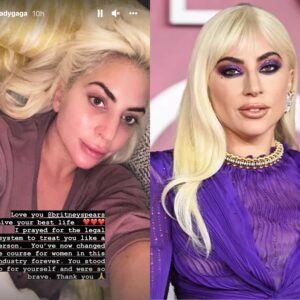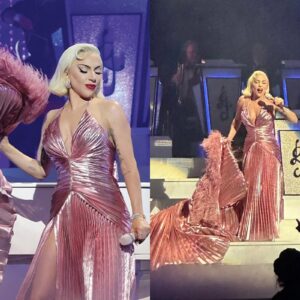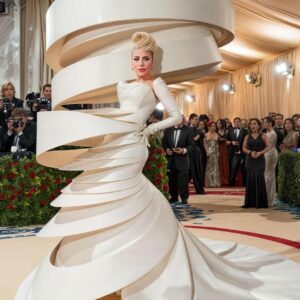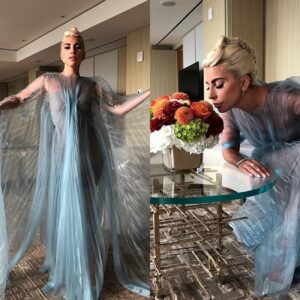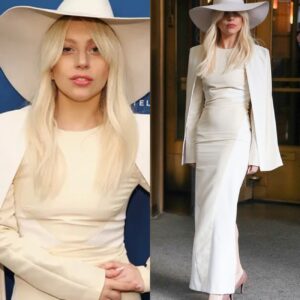In recent years, a controversial trend has emerged in Hollywood, with male actors being asked to don dresses for various roles.
This trend has sparked heated debates about integrity, influence, and personal choices within the entertainment industry.

The controversy surrounding this trend reached a boiling point when comedian Cat Williams publicly voiced his concerns.
Questioning why so many black men in Hollywood were being pressured to wear dresses for roles.
Williams’ comments struck a chord with many, igniting discussions about the underlying reasons behind this phenomenon.
One of the central issues raised by Williams and others is the notion of integrity. Many argue that wearing a dress for a role compromises an actor’s integrity and goes against their personal values.
Williams himself refused to succumb to the pressure, firmly believing that he shouldn’t have to compromise his principles for the sake of a role.
However, others in the industry argue that wearing a dress is simply a creative choice and shouldn’t be viewed as a reflection of one’s integrity.
They point out that actors have the right to make decisions based on what they believe is best for their careers and artistic expression.
The influence of money and fame also plays a significant role in this debate. Some argue.
That the allure of wealth and success can lead actors to make compromises they wouldn’t otherwise consider.
This raises questions about the extent to which financial incentives can influence an individual’s choices and decisions.
Kevin Hart, one of the highest-paid comedians in Hollywood, found himself at the center of this debate after accepting a role that required him to wear a dress.
Similarly, Martin Lawrence’s experience highlights the complex dynamics at play.
Despite initially resisting the idea of wearing a dress for a role, Lawrence eventually relented, leading to the success of films like “Big Momma’s House.”
His story raises questions about the pressures actors face in an industry driven by commercial interests.
Moreover, the spiritual and cultural implications of wearing a dress cannot be overlooked. For some, it goes against deeply held beliefs and cultural norms.
Cat Williams, for example, viewed wearing a dress as a betrayal of his cultural heritage and refused to participate in roles that required it.
In conclusion, the trend of men wearing dresses in Hollywood raises complex questions about integrity, influence, and personal choices.
While some argue that it’s simply a creative decision, others see it as a compromise of one’s values and principles.
Ultimately, the debate underscores the importance of examining the motivations.
Behind our actions and the impact they have on ourselves and society as a whole.
News
Lady Gaga Says Britney Spears Has ‘Changed the Course for Women’ in the Music Industry ‘Forever’
“You stood up for yourself and were so brave,” Lady Gaga wrote to Britney Spears after the end of the “Lucky” singer’s 13-year conservatorship PHOTO: KARWAI TANG/WIREIMAGE;…
Lady Gaga set to return to Las Vegas this summer for eight shows on her Jazz & Piano residency at Park MGM
Lady Gaga is putting back on her Poker Face for another round in Las Vegas. The New York City native, 37, is reviving her Lady Gaga Jazz & Piano residency for eight shows…
Why Lady Gaga Skipped the 2024 Met Gala
It’s been five years since Lady Gaga walked the Met Gala carpet, and while Little Monsters were hoping that this would finally be the year of the pop superstar’s…
AFTER “SWEEPING” THE RED CARPET, LADY GAGA AGAIN DAZZLED WITH A “MOVING” DRESS
In recent days, not only music lovers but also the audience of the big screen can’t help but sob when looking at Lady Gaga. Appearing as a star…
Lady Gaga on Feud with Ex-Friend Perez Hilton: It’s All ‘Rooted in Madonna’
“He’s just mad that I don’t want to hang out anymore because I don’t want to be around fake people,” the “ARTPOP” singer said of dissolving her…
Lady Gaga is glamorous on the red carpet at the Grammy Awards
Singer Lady Gaga with high hair, light makeup, and seductive off-shoulder dress appeared on the red carpet at the Grammy Awards ceremony. Lady Gaga appeared on the…
End of content
No more pages to load
